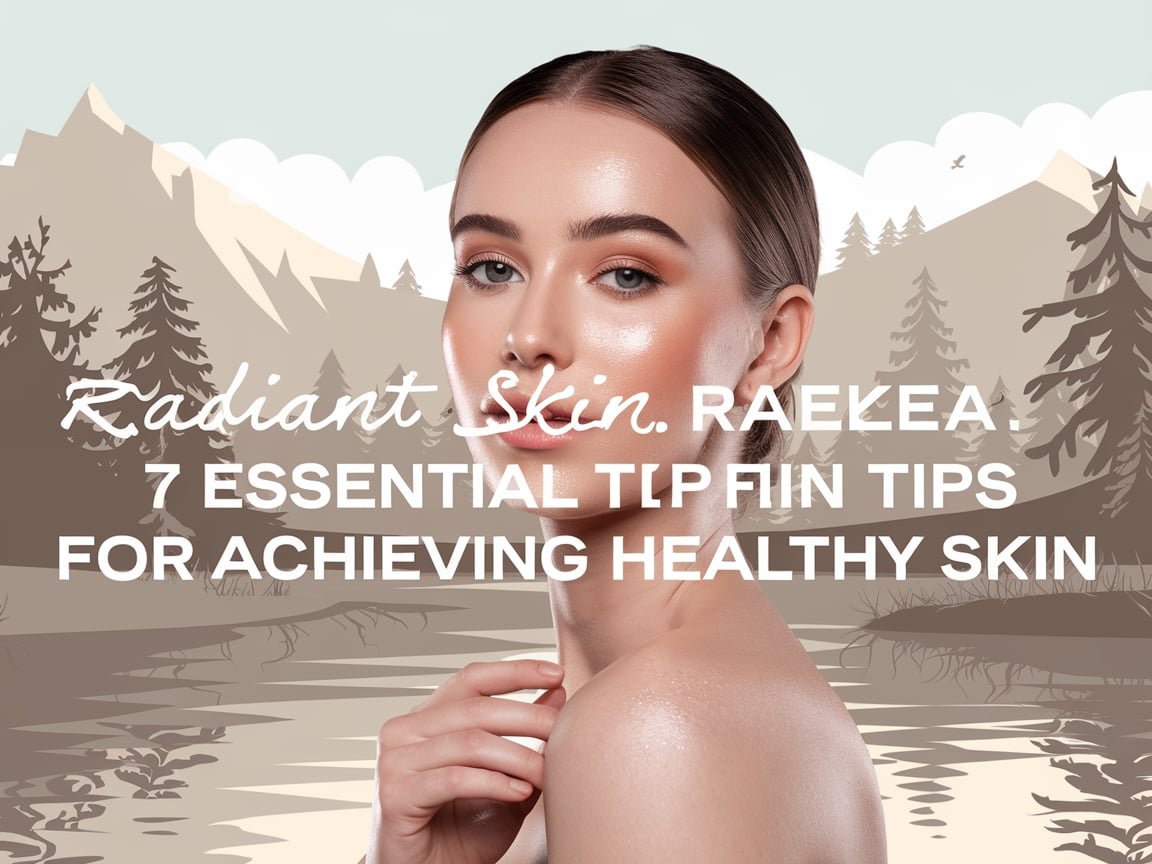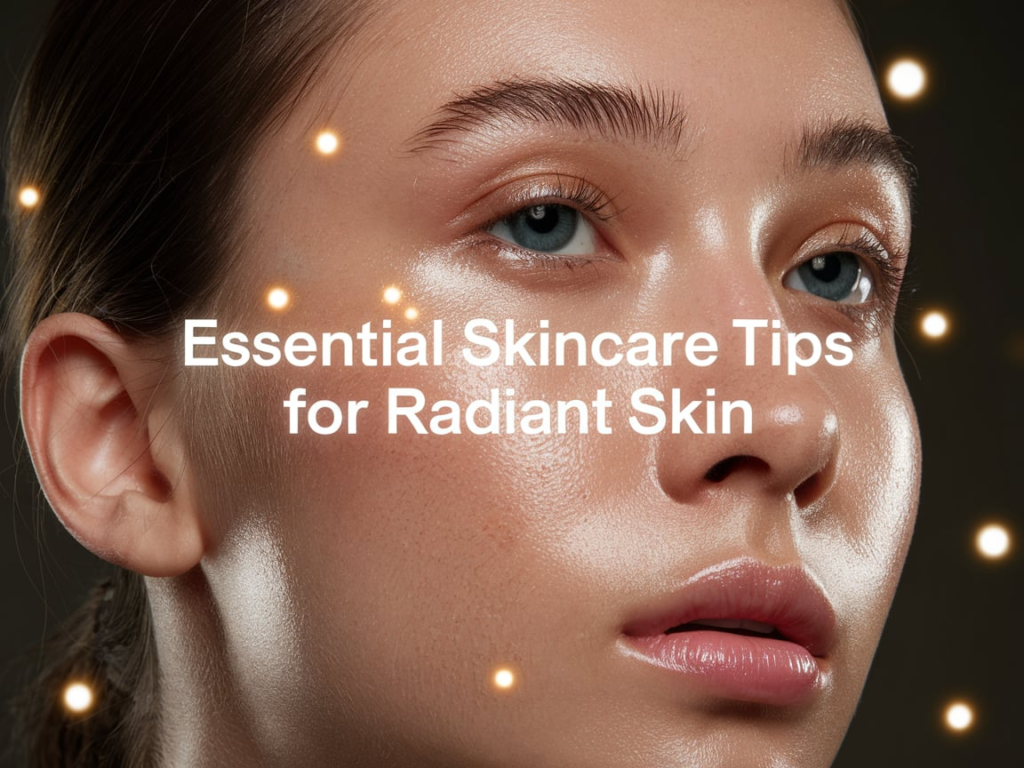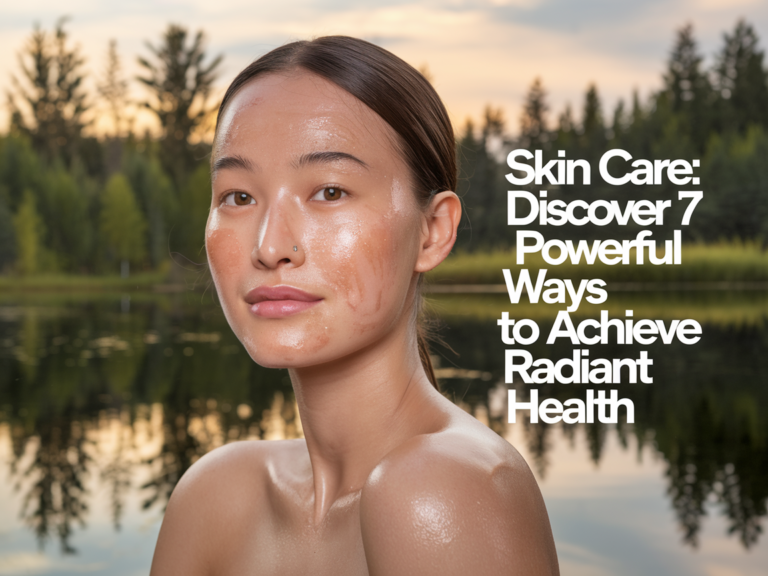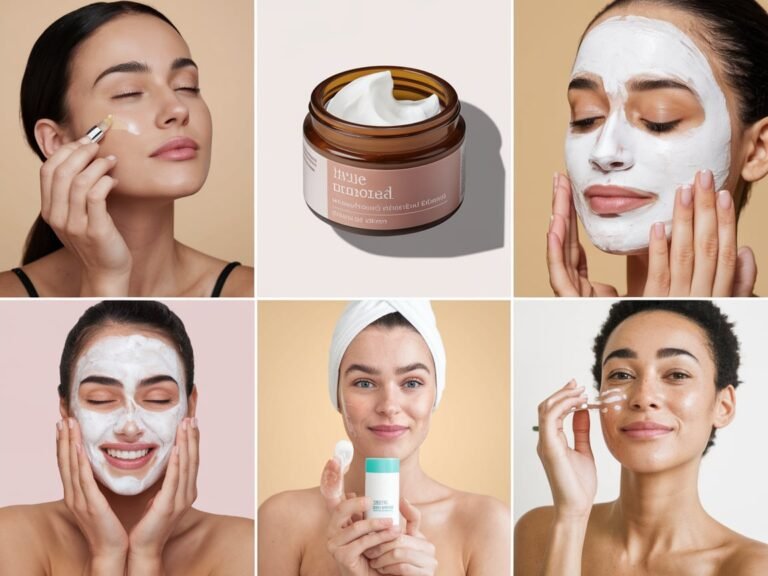
"Say goodbye to dull skin! Follow these expert tips for a luminous complexion."
Introduction
In a world that often emphasizes outer beauty, achieving healthy and radiant skin can boost not only your appearance but also your confidence. A glowing complexion reflects good health and self-care. This article will guide you through effective skincare practices and lifestyle choices that promote skin shine and vitality.
Understanding Skin Health

Before diving into skincare tips, it’s important to understand your skin type. Skin can be categorized as:
- Oily: Shiny appearance with enlarged pores, prone to acne.
- Dry: Flaky or rough texture, often tight or itchy.
- Combination: A mix of both oily and dry areas.
- Sensitive: Prone to redness, irritation, or allergic reactions.
Identifying your skin type helps tailor your skincare routine for optimal results.
Essential Skincare Tips for Radiant Skin

1. Hydration is Key
Drinking plenty of water is fundamental for maintaining skin hydration and elasticity. Aim for at least 8 glasses a day. You can also include hydrating foods, such as cucumbers, oranges, and watermelon. For more information on hydration and skin health, visit the National Institutes of Health.
2. Establish a Skincare Routine
A consistent skincare routine can significantly improve your skin’s texture and appearance. Here’s a simple regimen to follow:
- Cleansing: Use a gentle cleanser suitable for your skin type to remove dirt and impurities. Check out the American Academy of Dermatology for recommendations.
- Exfoliation: Exfoliate 1-2 times a week to remove dead skin cells, promoting a brighter complexion. Choose chemical exfoliants (like AHAs and BHAs) or gentle physical scrubs.
- Moisturizing: Apply a moisturizer that suits your skin type to lock in hydration. Look for ingredients like hyaluronic acid for added moisture.
- Sunscreen: Never skip sunscreen! Apply a broad-spectrum SPF 30 or higher every day, even on cloudy days. This protects your skin from harmful UV rays and prevents premature aging. For tips on choosing sunscreen, refer to the Mayo Clinic.
3. Nourish Your Skin from Within
A balanced diet rich in antioxidants can enhance skin health. Incorporate foods like:
- Fruits: Berries, citrus fruits, and pomegranates are packed with vitamins and antioxidants.
- Vegetables: Leafy greens, carrots, and sweet potatoes promote skin health with their high vitamin content.
- Healthy Fats: Avocados, nuts, and fatty fish provide essential fatty acids that keep skin supple and moisturized.
For more on how diet impacts your skin, check out Healthline’s guide.
4. Get Your Beauty Sleep
Quality sleep is crucial for skin regeneration. Aim for 7-9 hours of uninterrupted sleep each night. During sleep, your body repairs and rejuvenates skin cells, leading to a healthier complexion. Learn more about the importance of sleep from the Cleveland Clinic.
5. Manage Stress
Chronic stress can trigger skin issues like acne and eczema. Practice stress-reducing techniques such as:
- Meditation: Spend a few minutes each day in quiet reflection.
- Yoga: Engage in yoga to promote relaxation and improve blood circulation.
- Deep Breathing: Practice deep breathing exercises to calm your mind and body.
6. Avoid Harmful Habits
Certain habits can negatively impact your skin:
- Smoking: Tobacco use reduces blood flow to the skin, leading to premature aging.
- Excessive Alcohol: Alcohol can dehydrate your skin and lead to a dull complexion.
7. Tailor Products to Your Skin Type
Choose skincare products that cater to your specific skin type. Always perform a patch test before trying new products to avoid adverse reactions.
FAQs About Skincare and Radiant Skin

1. How often should I cleanse my face?
You should cleanse your face twice a day—once in the morning and once before bedtime—to remove dirt, oil, and makeup.
2. What ingredients should I look for in a moisturizer?
Look for ingredients like hyaluronic acid, glycerin, and ceramides, which help to hydrate and lock in moisture.
3. Is sunscreen necessary even on cloudy days?
Yes! UV rays can penetrate clouds, so wearing sunscreen daily is essential to protect your skin from damage.
4. Can diet really affect my skin’s appearance?
Absolutely! A diet rich in vitamins, minerals, and antioxidants can promote skin health and improve its appearance.
5. How can I determine my skin type?
You can determine your skin type by observing how your skin feels throughout the day. If it’s oily in the T-zone, dry on the cheeks, or sensitive, those characteristics help identify your skin type.
6. How long does it take to see results from a skincare routine?
Results can vary based on your skin type and the products used. Generally, you may start seeing improvements within 4-6 weeks of consistent use.
Conclusion
Achieving radiant skin requires a combination of proper skincare, healthy habits, and self-care. By following these essential tips and tailoring your routine to your skin type, you can enjoy a glowing complexion that reflects your inner health and vitality. Remember, consistency is key—your skin will thank you!






